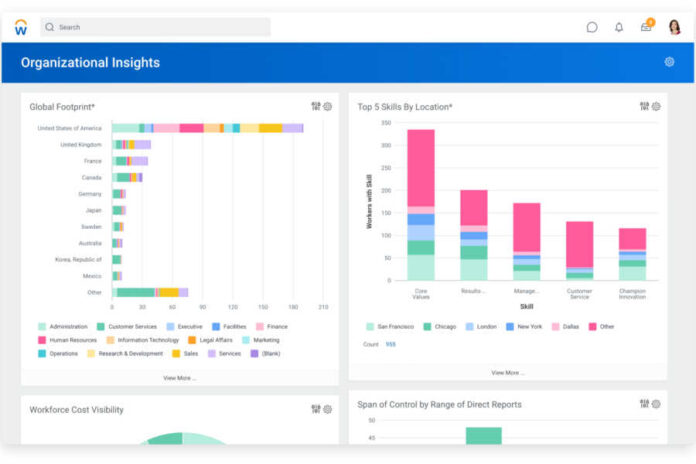
Leveraging its data and platform capabilities are key components of Workday’s approach to generative AI, along with a focus on facilitating teamwork between human employees and machines.
Already, AI and machine learning are embedded into Workday’s platform, the company said, with applications drawing from the more than 625 billion transactions the system processes every year.
In a wide-ranging series of product announcements at its Workday Rising user conference, the company released AI and ML capabilities designed to help businesses “drive productivity, streamline business processes, empower their people and make better decisions.” Workday also showcased a new AI Marketplace to help customers find and deploy advanced solutions.
In a blog post, CTO Jim Stratton said Workday has been using large language models like those that power generative AI “for years.” Like most other HR technology vendors, the company sees AI-based technologies as tools that can increase productivity and efficiency by streamlining work and decision-making.
Workday will begin releasing these features within the next six to 12 months, Stratton said.
Workday is pursuing hybrid, vendor-agnostic models in its AI efforts and will pursue development of multifaceted technologies, Stratton said. “Our goal is to ground third-party LLMs in truth by integrating context and factual information from Workday,” he explained. “By augmenting these models with Workday data, we aim to provide responses that combine the strengths of leading LLMs with the accuracy of verified data.” That, he said, “will result in a more robust and dependable solution for our customers.”
Like most technology vendors, Workday treads carefully when discussing AI’s impact on the workforce. “[O]ur emphasis remains on augmenting – not displacing – people,” Stratton said.
Indeed the company wants to help humans and machines collaborate, and to integrate human expertise into sophisticated technology applications. Human judgment, Stratton said, plays and should continue to play a “pivotal role” in decision-making.
Helping Managers Cope
Managers are a key constituency for Workday. “Managers play such a pivotal role in the growth and development of their teams but face increasing pressure to improve productivity and performance while navigating evolving workplace policies,” David Somers, group general manager of Workday’s office of the CHRO product, told UNLEASH.
“Workday is the single source of truth for people data, enabling us to surface relevant team information to managers when they need it most, helping them be more impactful,” Somers said.
At September’s Workday Rising user conference, Workday announced the addition of several AI-driven capabilities to its platform. According to UNLEASH, these include solutions to more quickly generate job descriptions, create personalized content in multiple languages and use Workday data to produce employee growth plans.
Third-Party Opportunities
Also at Workday Rising, the company announced a new AI Marketplace to help customers find and deploy advanced partner solutions by offering them in one place. The marketplace will feature AI and ML apps that integrate with Workday data via APIs, as well as apps built through Workday Extend using Workday-trained large language models.
The company also unveiled Developer Copilot, a human-machine teaming capability that uses generative AI to support the development lifecycle. Developer Copilot will be natively embedded into App Builder and will provide text-to-code generation capabilities by turning natural language into app code.
The company also launched AI Gateway, which offers access to services such as skills analysis, sentiment analysis, document intelligence and ML forecaster, a time series forecaster that enables tools to make seasonal and non-seasonal predictions.
Image: Workday













